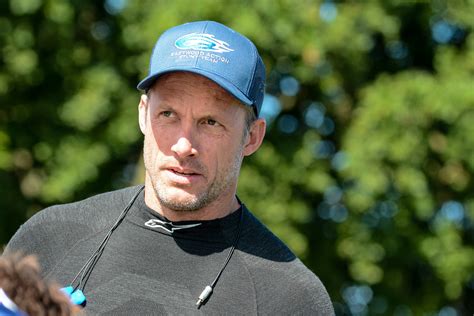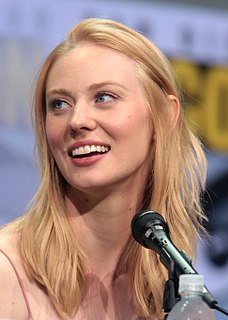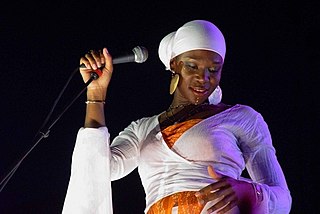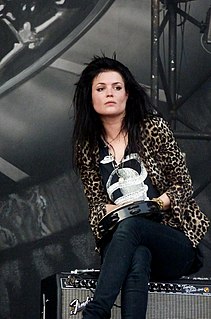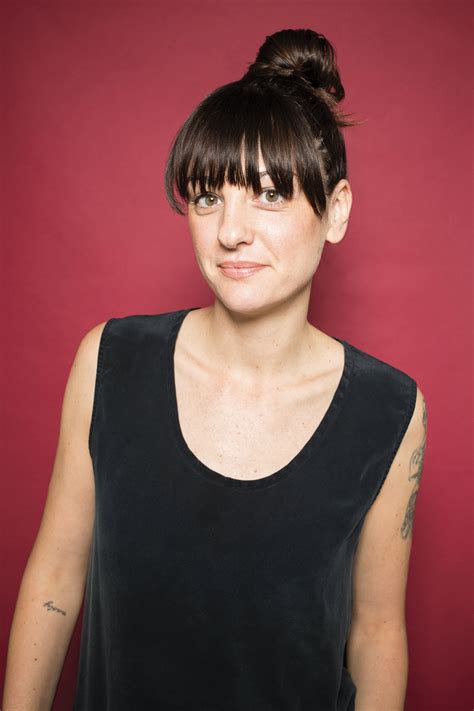A Quote by Roger Deakins
There are some sequences in films that I think work filmicly, that stand out to me, but thats much more to do with the staging and the cutting and the mood of the thing as a sequence, the way everything comes together.
Related Quotes
The worst thing that can happen is when you have gone weeks and months into elaborate sequences and the storyline of the film changes and you find out they don't need it. Sometimes you don't shoot those sequences, or they have been shot and then get edited out of the sequence you've shot gets changed and needs to be redone. That can be hard. It's not heartbreaking, but you do tend to think, "Och, all that work and effort." But that's filming, you know? You put all of these modular things into the pot, and sometimes they don't all get used.
I am committed now to one thing: lyric sequences. I want the intensity of lyric, but the scope and arc of narrative. so, I think I'll just write sequences for the foreseeable (the Beloved sequence doesn't have a 'plot' so I can just keep adding poems to it, it's like a giant bag I can just put beloved lyrics into - I think there are about 300 of them i've published by now).
I think sometimes there are films where I understand what they are about, but there are also some mysterious areas in the film where I haven't got the whole image and I haven't got everything. And then it stays much longer with me, because I have to somehow put myself much more into the film to get it. And so this is what I'm trying to do with my films.
The visuals and the audio, could stand by themselves in a way. But the whole idea of the thing, is that they would exist together. So I think together, they're way more of a stronger thing. You could listen to just the music, or just watch the video, but I think it would really mean... obviously it would just be half the experience.
As an actor, you never really set out to be a stand-out character. You just want to do justice to the story and enjoy playing it, and find all the different nooks and crannies of who someone is. For each part that you get, they're all special and you just try to give everything you can to each one. I don't know whether they're going to be stand out in that way or not factors into my work. They all stand out for me.
I'm genuinely peaceful and positive. I feel more grounded and connected with everything - friends, family. And I think I've changed the way I deal with stuff recently; I'm trying to think of everything in a more positive way because if something gets me down, it'll really gets me down. The thing I wish I could do more of is train. It's the one thing I do that doesn't require any emotion.
One of the things that I've worked my way out of doing, and I knew that I needed to, was comparing myself to other people. That just poisins everything. It all of a sudden dtermines even clothes you're going to choose to wear that day or what you're going to do with a music production or how you're going to sequence it. It poisinseverything. Your real job in the world is to be you. Comparing yourself to other people I think that hurt me more than anything. Allowing myself to go there so much in my head hurt me.
I'm inspired by being in a different town every day - all the people I meet, all the things I see. There's no way of compartmentalizing everything in my head; whatever I'm taking in is coming out in some way. I think I love painting so much because, for me, it's so fast. There's not too much thought in these paintings.
Everyone needs some trial and error figuring out how it's gonna work for them. I could have gotten that out of the way a little sooner but I think you're totally right, the way I kind of think about things and the way I wanted to put myself out there doesn't fit the traditional side of things. I needed things like podcasts and YouTube and things that allow you to get it out there yourself and stand in the flames.
My work is really the accumulation of these different moods that I've had throughout my life and where they've taken me. I start looking back, and I think, I've actually created a life out of all this, out of these changes of mood. They've pushed me through all these years, and I seem to have a semblance of a life, and if I look very carefully, I can see some thematic design to it. There's some continuity.
My filmmaking style of remixing came out of necessity. When I was a film theory student at UC Berkeley in the early 1990s, there were no film production facilities. The only way I learned to tell stories on film was by re-cutting and splicing together celluloid of old movies, early animated films, home films, sound slug - anything I could get my hands on.
A short story is confined to one mood, to which everything in the story pertains. Characters, setting, time, events, are all subject to the mood. And you can try more ephemeral, more fleeting things in a story - you can work more by suggestion - than in a novel. Less is resolved, more is suggested, perhaps.

